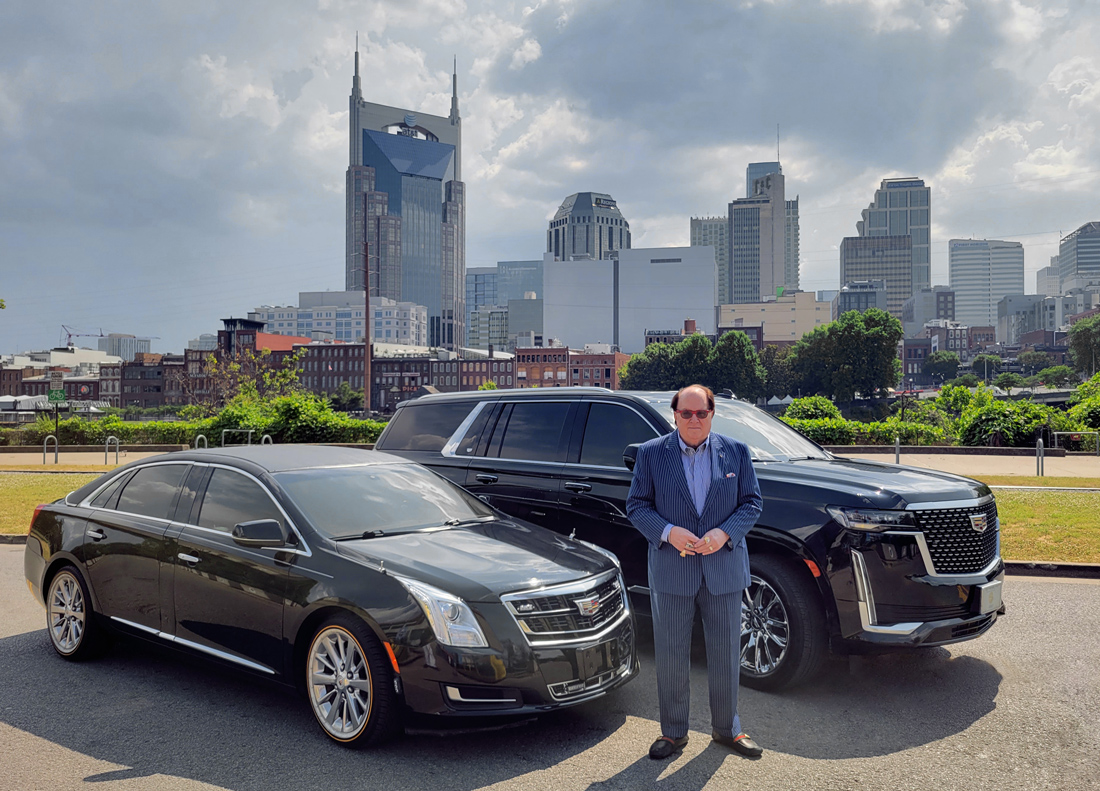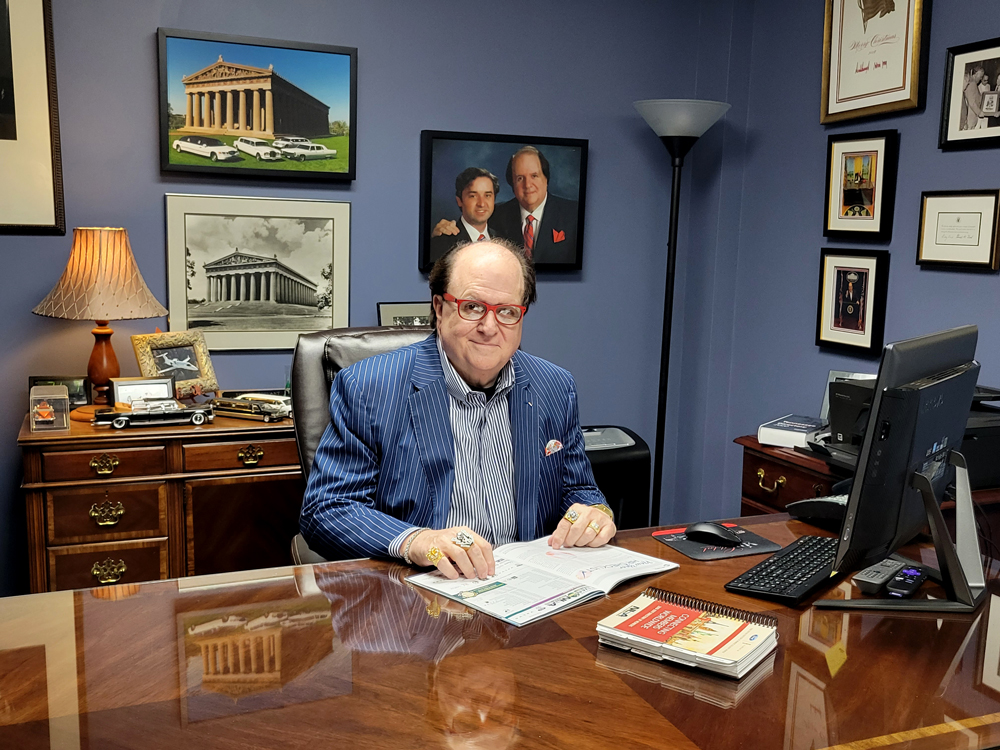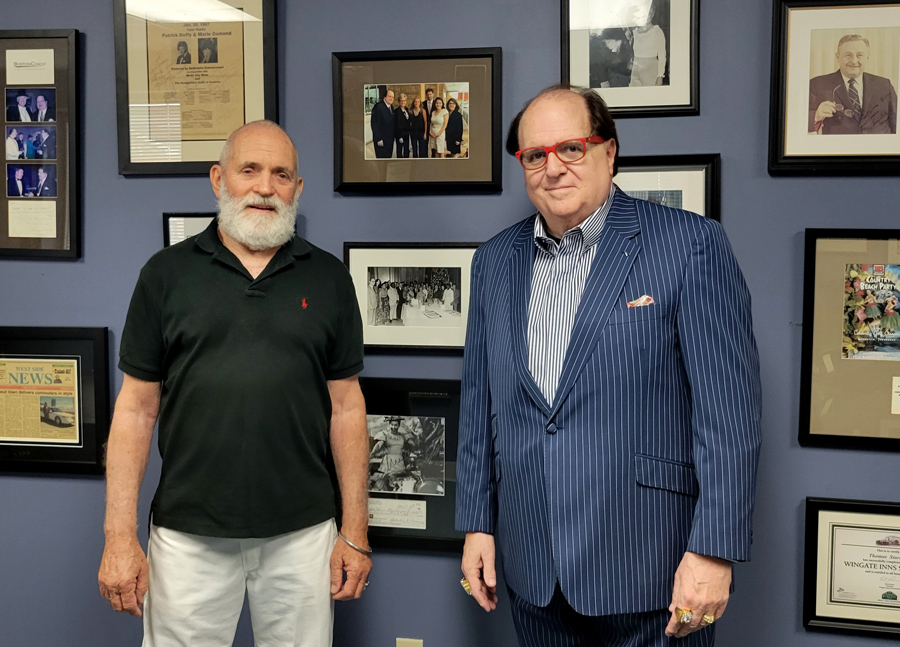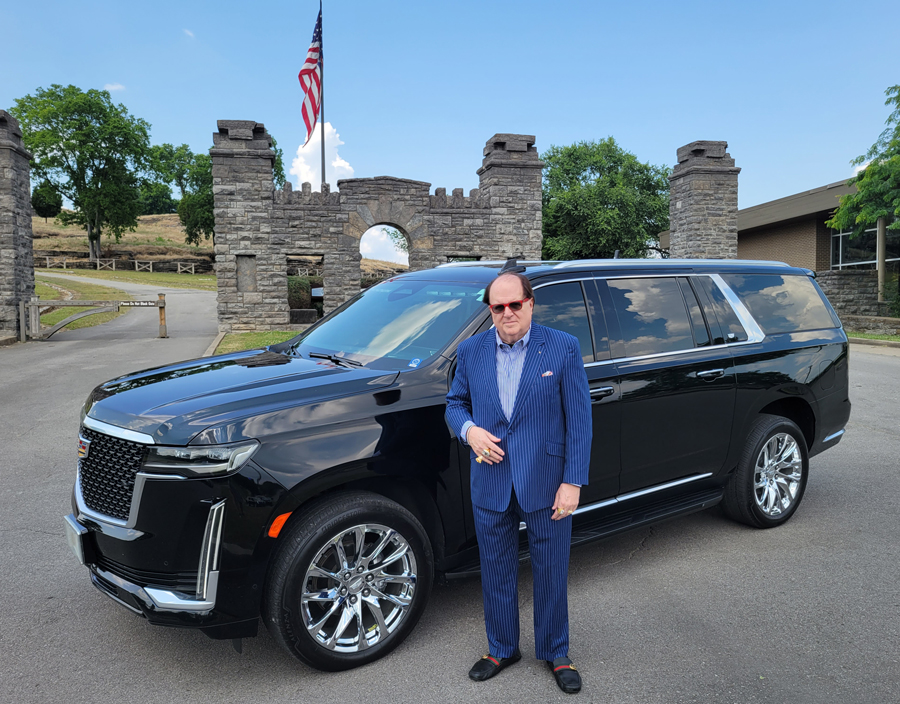 Sedan on Demand CEO Tom Sturdivant founded his company in his hometown of Nashville more than five decades ago
Sedan on Demand CEO Tom Sturdivant founded his company in his hometown of Nashville more than five decades ago
BY SUSAN ROSE
“I’ve never gone to work a day in my life,” says Tom Sturdivant, the man behind Nashville’s Sedan on Demand, which he founded in 1967. Now celebrating 57 years as an operator, a milestone that precious few have achieved, the CEO is still loving the journey of being among the city’s longest-serving transportation companies—although we’re pretty sure he’s being modest about the extent of hard work it took to get there.
Quick with a joke and blessed with an encyclopedic knowledge of the state’s capital city and its surrounding suburbs, it’s no wonder that Sturdivant found success quickly. Working in cahoots with the Andrew Jackson Hotel staff—which often included the then-undiscovered Roger Miller, a Grammy and Tony Award-winning country artist who was known as the “singing bellhop”—the gregarious 17-year-old Sturdivant would offer tours of country music stars’ homes to hotel patrons using a limousine he borrowed from a funeral home (which also had its own book of distinguished and well-connected clients over the years).
 By the time the landmark hotel was razed in 1971 to make room for Nashville’s future downtown, Sturdivant owned seven cars and served a multitude of businesspeople, celebrities, politicians, and tourists. Today, he can regale you with compelling and intriguing stories about the elite of Music City or get you into an exclusive event at one of Broadway’s honky-tonks as easily as he can transport you to the Nashville International Airport—or a group move, conference, special event, wedding, or funeral for that matter. If it’s all about who you know, then it didn’t hurt that his brother John, a Music Row executive, was married to the daughter of Kitty Wells and Johnny Wright, two trailblazers in 1950s and 1960s country music.
By the time the landmark hotel was razed in 1971 to make room for Nashville’s future downtown, Sturdivant owned seven cars and served a multitude of businesspeople, celebrities, politicians, and tourists. Today, he can regale you with compelling and intriguing stories about the elite of Music City or get you into an exclusive event at one of Broadway’s honky-tonks as easily as he can transport you to the Nashville International Airport—or a group move, conference, special event, wedding, or funeral for that matter. If it’s all about who you know, then it didn’t hurt that his brother John, a Music Row executive, was married to the daughter of Kitty Wells and Johnny Wright, two trailblazers in 1950s and 1960s country music.
“There are only two places you’d pay to see someone’s home: Hollywood and Nashville. On the tours, if the star was home and came out to greet the tour, the tip was bigger,” he says. Early on he understood the power of delivering unforgettable service and the impact it had on growing his business, not to mention the client’s grateful reaction to the experience. “Something I never understood was how an airline can leave you on the tarmac for two hours, lose your luggage, or bump you from a flight and the next day you’ll fly them again, but if a car service is late, you’re looking for a new one. We’re held to a higher standard than any other service in the hospitality industry,” he says, adding, “A chauffeur works for his wage, but he always works harder for his gratuity.”
“There are only two places you’d pay to see someone’s home: Hollywood and Nashville. On the tours, if the star was home and came out to greet the tour, the tip was bigger.” – Tom Sturdivant, CEO of Sedan on Demand.”To attract business and tourists alike, Nashville has certainly blossomed over the past several decades. The demolition of the Andrew Jackson Hotel made way for several state office buildings near the Tennessee State Capitol. The former Hyatt Regency’s Polaris, a rotating rooftop restaurant that was an iconic and skyline-dominating hot spot when it opened in the mid-1970s, is now the very stationary Sheraton Grand Nashville’s Skye Lounge—albeit with a killer view. Just around the time that the line between country music and pop began to blur and go mainstream in the 1990s, the city had already opened the AT&T Tower (cheekily known as the Batman Building) and the Bridgestone Arena, home of the NHL’s Predators as well as countless concerts and special events annually. At the same time, local business leaders were hard at work on Broadway’s renaissance, where nightly live music—country, pop, rockabilly, alt-rock, indie, gospel, whatever—emanates from the dozens of entertainment venues in the shadow of the renowned Ryman Auditorium and Country Music Hall of Fame. It’s a popular destination for bachelor and bachelorette parties, often beating out other locations like New York and Las Vegas.
 Fleet Manager/Executive Chauffeur John Pitt (left) with Sturdivant While the music scene is obviously incredibly strong in the aptly named Music City USA, thanks to nostalgia and the major record labels still located in the area, it’s easy to forget that it’s also the Volunteer State’s capital and an important business hub in the Southeast.
Fleet Manager/Executive Chauffeur John Pitt (left) with Sturdivant While the music scene is obviously incredibly strong in the aptly named Music City USA, thanks to nostalgia and the major record labels still located in the area, it’s easy to forget that it’s also the Volunteer State’s capital and an important business hub in the Southeast. “I don’t think there’s a time where we haven’t had a crane in the sky since 1990,” says Sturdivant about the construction that dominates the downtown. “I counted 17 the other day.” In fact, Nashville’s strongest economic driver is healthcare. With hundreds of healthcare companies in the metro area, Sturdivant says that patients are managed countrywide through companies like HCA Healthcare, while health education is delivered through HealthStream and IT services through Change Healthcare, to name a few. With healthcare nationwide in a period of flux, these conglomerates are shaping how we consume medical services throughout the continuum of care over a lifetime. With that, the Nashville region has become one of the nation’s fastest growing producers of white-collar jobs—bringing plenty of business to companies like Sedan on Demand. He’s been actively involved with the city as well as regional organizations (including the chamber of commerce) for years, and he encourages others to do the same.
Sturdivant has certainly witnessed a lot during his career, ebbing and flowing with the transforming city landscape and the differing needs of his clients. Despite COVID being the worst emergency since the ’70s energy crisis or even the catastrophic flood in 2010, he says that the company kept moving.
“Of course, vehicles have changed since we were running Fleetwood 75s. Although limousines are still important to our clients, especially funeral, this might be our last year running them,” he says. “Computers have changed us, software has changed us. However, I feel like we made fewer mistakes when we had paper tickets. Back then we didn’t have credit cards like we do today; we billed everyone. We still do direct mail, and we get a pretty good return rate too. I see the good and the bad of progress.”
 Through the shifts in business dynamics and city development, Sturdivant’s commitment to delivering a seamless ride and exceptional service experience remains unwavering. It’s one of the few things he laments about the industry, in part due to the impact of Uber and Lyft on the operator-client interaction.
Through the shifts in business dynamics and city development, Sturdivant’s commitment to delivering a seamless ride and exceptional service experience remains unwavering. It’s one of the few things he laments about the industry, in part due to the impact of Uber and Lyft on the operator-client interaction. “We used to be among the most elegant professions in the world. I don’t understand how the industry went from suits to golf shirts and baseball hats. We’re not Uber but we’ve let it bleed over into our profession. There used to be a difference between a chauffeur and a driver,” he says. “If I were a customer, I wouldn’t pay $150-$200 an hour for a Sprinter and have the driver show up in a golf shirt. That chauffeur is your exclusive ambassador for the time he’s in your employ. We as an industry have to get back to the core of our business: service. We have to be Nordstroms, not Walmart.”
Now that he’s past his golden anniversary (50 years), he’s well on his way to marking his diamond anniversary in 2027. The company runs sedans and SUVs in addition to vintage buses and other specialty metal. He says his team is “the best in the world” so he can be out and about, although he still gets behind the wheel regularly and is entirely involved in his operation.
You have to wonder: What if Tom Sturdivant hadn’t been an entrepreneurial teenager and hadn’t built a legendary career in luxury transportation? He thinks for a second about the answer. “Well,” he says, “I figured the world had enough brain surgeons, so I was good with this.” [CD0124]

